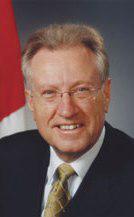Mr. Chairman, 1981 takes us back to a previous project and another government. It was not the right project for the Canadian forces so we cancelled it. Our 1994 white paper policy indicated that replacement of the Sea Kings was one of four major projects. We proceeded on the search and rescue first. We replaced the Labradors and the submarines. We purchased the light armoured vehicle, the LAV III, and we entered into the replacement of the Sea Kings. Of course we did the upgrade of the Sea Kings so they could continue to operate while we have gone through this process.
In terms of the government and this project it is not the same project started in 1981. It had a different kind of mission purpose and a different statement of requirements from today. It was started by the government in the mid 1990s.

